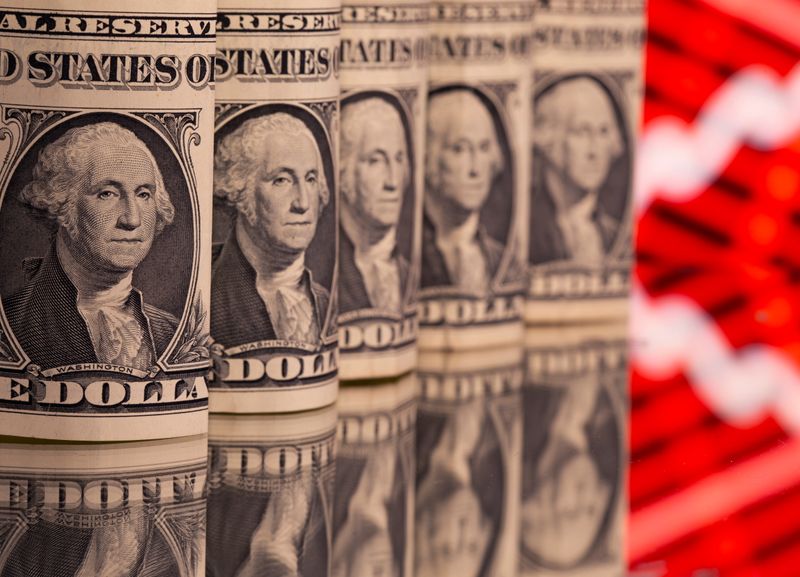By Karen Brettell
NEW YORK (Reuters) – The dollar surpassed the symbolic level of 150 yen for the first time since 1990 on Thursday, while the British pound turned negative in choppy trading after Liz Truss said she would resign as the United Kingdom’s prime minister.
The Japanese currency dipped sharply from an interim high of 150.09 reached in overnight trading, tumbling to 149.63 within a minute, which raised speculation that the Ministry of Finance and Bank of Japan might be making stealth interventions at key levels.
The yen rebounded to hit new 32-year highs in afternoon trading in New York, however, getting as high as 150.25. It last traded at 150.18.
While the likelihood of any intervention is an open question, some analysts think that such a move would not stop the currency from weakening further absent a shift in the Bank of Japan’s ultra-dovish policy.
“Until you see either the BOJ change their tune, or if we start to see the U.S. economic outlook deteriorate a lot quicker that will help the Fed finally deliver that Fed pivot, you’re going to see that the bet against the yen is still the favorite trade in FX,” said Edward Moya, senior market analyst at OANDA in New York.
The Federal Reserve is expected to continue raising interest rates as inflation remains stubbornly high, with some forecasting its benchmark overnight interest rate to peak above 5%. The rate is currently in the 3.00%-3.25% range.
Philadelphia Fed President Patrick Harker said on Thursday the central bank is not done with raising its short-term rate target amid very high levels of inflation, while adding it was likely the U.S. central bank will find space next year to pause the tightening process and take stock of how its rate increases are impacting the economy.
The housing market has been one of the most affected sectors from higher rates even as other sectors including jobs remain solid. Data on Thursday showed that sales of existing U.S. homes slid for an eighth straight month in September.
Expectations of higher rates have sent U.S. yields and the dollar higher, particularly against the yen as the BOJ is committed to keeping interest rates near zero.
Japanese policymakers made fresh threats of intervention on Thursday. They are seen as more likely to step in if currency moves become more erratic.
“The (Ministry of Finance) has been very clear that they are ready to intervene if there is any disorderly price action, so the markets are priced for that coming at some point in time,” said Derek Halpenny, European global markets research head at MUFG.
“Obviously, if we break clearly above 150 we may see some disorderly price action and that could be the catalyst for some action,” he added, though emphasizing it would take a sharp move in the pair to trigger intervention.
The BOJ will hold its next policy meeting on Oct. 27-28.
The British pound turned lower on the day after Truss said she would resign as prime minister. She was brought down by the announcement of an economic program that sent shockwaves through the markets and divided her Conservative Party just six weeks after she was appointed.
The pound rallied ahead of the resignation announcement, and later hit session highs, before changing course and turning lower. It was last down 0.05% on the day at $1.1219.
“Initially, this is likely to take an uncertainty premium out of the market, but it depends who takes over, you need a steady hand at the top,” said Viraj Patel, global macro strategist at Vanda (NASDAQ:VNDA) Research in London.
The dollar index dipped 0.10% against a basket of major currencies to 112.86, which analysts said was likely due to consolidation. The euro gained 0.13% to $0.9785.



